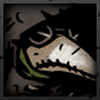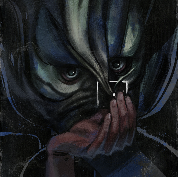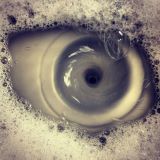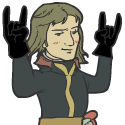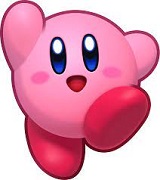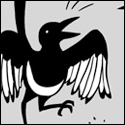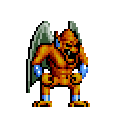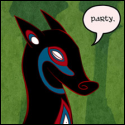|
What are people reading after this for more space exploration and orbital mechanics sci-fi? I really enjoyed how the tension and interest of the plot was mixed so well with technological. Clearly he had to do quite a bit of research. I feel like I actually learned a few things along the way. Any recommendations? I think I found out what happened to the mars expedition: https://www.youtube.com/watch?v=WjNssEVlB6M Torus so hard
|
|
|
|

|
| # ? May 14, 2024 02:50 |
|
Blind Rasputin posted:What are people reading after this for more space exploration and orbital mechanics sci-fi? I really enjoyed how the tension and interest of the plot was mixed so well with technological. Clearly he had to do quite a bit of research. I feel like I actually learned a few things along the way. Any recommendations? This is a genre that my husband and I have started calling "space peril". I suggest the movie Gravity for visuals (featuring the ISS getting hit by sort of a mini White Sky of satellite debris) and the novel "The Martian" by Andy Weir (featuring a lone astronaut stranded on Mars) for heavy duty technology. The Martian is going to be a movie starring Matt Damon directed by Ridley Scott coming out in November, too, so that should be cool.
|
|
|
|
HelloIAmYourHeart posted:The Martian is going to be a movie starring Matt Damon directed by Ridley Scott coming out in November, too, so that should be cool. Somewhere on this forum I was turned on to Blindsight by Peter Watts, which isn't much orbital mechanics but is also cerebral hard sci-fi and happens to be made freely available by the author as an ebook.
|
|
|
|
It's not a book but if orbital mechanics interest you even a tiny bit you should play Kerbal Space Program -- I'm pretty sure my brief ~5 hours with that did more to prepare me for the stuff in this book than any other movie or novel I've ever gone through. I think it's pretty rare even in hard SF for deep dives into orbital discussion. Some old Niven stuff maybe? Descent of Anansi, I think? And if you haven't read The Cold Equations you probably should, it's quick and depressing and has informed a metric ton of SF over the years. Some of Charles Stross's stuff has interesting bits about how lovely even interplanetary travel would be on human timescales, but I don't think you'll find him talking about apogees and transfer orbits. Also the one I'm thinking of (Saturn's Children) verges on erotica (It's sort of a play on Heinlein's Friday starring a sex-bot.) One thing that I really liked about the first 2/3rds of Seveneves is that it's a very believable scale of events -- people dealing with the tech we have now to work wonders as best they can. A lot of hard sci fi zooms waaaay further out and worries more about the fate of the universe than getting an orbit to the moon over the course of a couple years. You also get a lot more character work in this, despite a lot of people saying otherwise -- 95% of hard SF is about the grand scale ideas rather than the people caught up in them. That's arguably true in this book too, but I think stuff like the relationship between Ivy and Dinah that everyone on the outside thinks is more confrontational than it actually is means that Seveneves has a more meat on its bones character-wise than most hard SF (where the characters are generally interchangeable logical automotons.) This whole digression was brought on by me thinking of recommending the Manifold trilogy by Baxter, fwiw. E: And yeah Blindsight is great and even lampoons some of the character stuff I was mulling by making the main character totally unable to express emotional responses (for very specific reasons.) NmareBfly fucked around with this message at 01:54 on Jun 8, 2015 |
|
|
|
Blind Rasputin posted:What are people reading after this for more space exploration and orbital mechanics sci-fi? I really enjoyed how the tension and interest of the plot was mixed so well with technological. Clearly he had to do quite a bit of research. I feel like I actually learned a few things along the way. Any recommendations? All the recommendations so far are great but playing Kerbal Space Program will make everything else better.
|
|
|
|
Finished it last night, and I have to agree that it was basically two thirds of a real good book, then one third of what might have been a cool separate book. Instead it comes across as half-baked and mostly full of exposition, with a tiny conflict and resolution thrown on at the end. It's not like he can't do world building well, Anathema was really good. But the back third of Seveneves is like if the plot of Anathema was hastily resolved the second they left the concent. Also I still have no clue what any of the poo poo orbiting the planet looks like, the pictures in the kindle edition aren't great. That's probably more due to me having a poo poo brain for that stuff though.
|
|
|
|
I feel like the first 2/3 just get far too lost in describing the space station and the characters suffer for it, a lot. Early on you have the stuff with Tekla, which is fantastic, and the stuff with Doob is decent (though I cringed several times when he would mention things like "truthers" or how Doob "isn't a spiritual man" because heh, science bitches!) but then there will be literally 30-50 pages where all that "happens" is he does a time jump and then slowly and with what I would consider way too much detail tells us what has been tacked onto the station since before the time skip. Like I said earlier, he certainly used to have the ability to do that and still have it be supremely entertaining (I'm thinking of the lengthy descriptions of the prison architecture in System of the World or the Turkish Invasion in Quicksilver). When REAMDE was written in a dry, no-nonsense style I enjoyed it because the characters were still great and the world-hopping events were still fascinating, but now I'm worried he's moved into a new phase of his writing career that just isn't as fun or exciting as it once was. If Seveneves had just been the last 1/3 but expanded to fit the whole pagecount it would probably have been a lot better. As it stands it's the weirdest book he's written, not because it's odd, but because it's so blase. 
|
|
|
|
The way I see it, he had two really great ideas for a book. He wanted to tell a natural disaster story on a scale most writers wouldn't attempt while exploring how humanity would survive with the technology available to us at the moment. But he also wanted to tell the story of a future earth where our society was as far removed to the society in the story as the Egyptians are from us. The problem is that while there's an obvious relation in continuity between those two stories, linking them doesn't necessarily benefit the other. If Seveneves had simply ended with the Eves making their pact, I think most of us would have seen that as a pretty logical conclusion and satisfying ending for the events that had just transpired. He could have tacked on an epilogue where one of the characters postulated about any humans left on earth who might still be alive and what 4000 years in extreme conditions would do to them, or if they would ever hear from the Mars group again, but that story was over when they got to Cleft. You then have an entirely different book with entirely different characters in an entirely different society for Stephenson to play around with. The problem is that it doesn't feel nearly as far removed from the events of Seveneves as it should. Over 4000 years have passed and they talk about it like it was yesterday. Sure, the events forcing humanity into space and creating new races informs their entire society, but so much else would have happened. He at best vaguely references political entities that rose and fell in the interim, but nothing but the Seven and the Hard Rain seem to have any lasting impact on their society. And I think this is because the reader is now super familiar with the events of the Epic and it would be strange to introduce a mythological take on those events in the same book. Stephenson also used the new Seven at the end as a thematic continuation of the characters we left behind on Cleft. They're not literally the same people, but we get a glimpse at those people's logical continuations. But as a result the future society doesn't feel authentic. I think he gets one or the other of those two books, but not both, at least not without separating them into two and putting a decade of other novels in between. The last third would have worked a lot better if we had introduced characters and a crisis and used those as a way to walk backwards through the four millennium that it took to get to the Eye. We need to see the Seven worshiped as almost god-like beings. We need legends of deeds and fragments of history that are misremembered. The Epic should be seen through a foggy haze, scraps of records having survived, not every piece meticulously preserved and analyzed and played non-stop in every building at all times. Maybe Stephenson decided it would just be too drat weird to describe events that had happened only a few hundred pages back differently than the reader had just read them? But I think that's the only way the second story would work.
|
|
|
|
Could someone just explain where in hell he got the idea for the talking messenger crows? Literally the most bizarre thing I read in that book.
|
|
|
|
Blind Rasputin posted:Could someone just explain where in hell he got the idea for the talking messenger crows? Literally the most bizarre thing I read in that book. It was weird and I have no idea what the inspiration was from, but it seemed practical enough. They liked loving around with genetic sequences and getting crows to remember messages isn't much of a stretch from what crows can already do. It's a tough system to spy on because it's not bouncing on radio relays or satellites. The crow only delivers it to a person you've specified. If you are worried about the crow being intercepted, you can have it remember a coded message that only the intended recipient would understand.
|
|
|
|
"It's a one-time crow! We'll never decrypt this!" e: It could have also been a joke about using ravens in the Game of Thrones books. Stephenson has always put things in his books that poke a little fun at fellow popular writers. precision fucked around with this message at 15:16 on Jun 15, 2015 |
|
|
|
Just finished it, had a good time. I feel it was crunched for space, I think I would have preferred it split in two volumes. There was to much exposition, especially in the last part. Baroque cycle is my favorite of his works, I wish he would wire something of that length again.
|
|
|
|
I was really excited about this up until about halfway through because I thought it was going to be connected to Anathem--it's been a long time since I've read it but weren't the aliens in that similar looking to humans and traveling in a similar type of spaceship, looking to resettle? With a similar dynamic of nearly human genetics? I was so sure that the book was going to suddenly feature interdimensional travel at the end which would have made all of the early dryness worth it
|
|
|
|
Sharzak posted:I was really excited about this up until about halfway through because I thought it was going to be connected to Anathem--it's been a long time since I've read it but weren't the aliens in that similar looking to humans and traveling in a similar type of spaceship, looking to resettle? With a similar dynamic of nearly human genetics? I was so sure that the book was going to suddenly feature interdimensional travel at the end which would have made all of the early dryness worth it The original travellers in Anathem were not from earth. Earth was actually the third dimension visited with the world in Anathem being the fourth. Also the ships weren't similar in design beyond rotating for gravity.
|
|
|
|
Atlas Hugged posted:The original travellers in Anathem were not from earth. Earth was actually the third dimension visited with the world in Anathem being the fourth. Also the ships weren't similar in design beyond rotating for gravity. Also the Laterrans were identified by a map of the earth - which would be quite different after the White Rain
|
|
|
|
The lady who reads the audiobook is atrocious. Probably the worst audiobook I've tried to listen to. Had to quit after 2 hours. Will definitely give the actual book a go though.
|
|
|
|
The plot would work pretty well as a setup for an Alpha Centauri style colony management game, come to think of it. Stephenson's
|
|
|
|
I've given up hope on a Snow Crash movie, but a Snow Crash RPG could be super fun.
|
|
|
|
I just want HBO to go hog-wild with a Baroque Cycle adaptation. They can even drag it out over like a loving decade by having it lead right into Cryptonomicon.
|
|
|
|
Atlas Hugged posted:
See, but I got a different impression here: we expect these types of changes over time because record-keeping methods in the past were spotty and more easy to lose track of over time. But in this scenario, continuity and volume of historical records are not an issue at all, because it's all digital. Imagine how our society today (as well as the interim history) would be different if Jesus had literally had a Facebook account and video blog that he used regularly. Or if we had complete video recordings of the entirety of the Continental Congress. You simply wouldn't have as much room for misinterpretation, or at least you'd have entirely different ways in which to reach multiple interpretations. I've only read it the once, so I'm not at a point where I can cite chapter and verse like with some of his other books, but I think I recall one of the earlier characters remarking about the possibilities of digital culture, so I think that was at least a small part of the point in the end. Those future folk had much, much better historical records than we do, so they didn't have to resort to thinking of long-departed historical figures as infallible gods like we so often do.
|
|
|
|
My only gripe with that is that he mentions a dark age because their digital tech all started to breakdown and they couldn't yet replicate it and so the record goes dark and presumably some of it would have been lost. They wouldn't have been able to recover everything and things would still be subject to thousands of years of tradition and interpretation. And then there's the question of who would be in control of the information. Plus, surely someone else in that 4000 years would be worth discussing. Babylon 5 basically tackled the same idea a lot more eloquently.
|
|
|
|
My biggest problem with Seveneves I just hit the time skip is that it really just Tells instead of Shows to a degree I find aggrivating. It's a lot of writing which amounts to "Bob gave a speech. It was an important speech and it said all the things he needed to say. History books would record the speech. He said it well. Then Bob discovered a problem. Fortunately Bob solved the problem and it was resolved." I know they can't hyper-emphasis everything in what amounts to an already extremely long book but I got really tired after a few repeated "a thing happens."
|
|
|
|
ImpAtom posted:My biggest problem with Seveneves I just hit the time skip is that it really just Tells instead of Shows to a degree I find aggrivating. It's a lot of writing which amounts to "Bob gave a speech. It was an important speech and it said all the things he needed to say. History books would record the speech. He said it well. Then Bob discovered a problem. Fortunately Bob solved the problem and it was resolved." I know they can't hyper-emphasis everything in what amounts to an already extremely long book but I got really tired after a few repeated "a thing happens." And he starts sentences with and. And he does it often. And often he does it with several sentences in a row. And it's maddening.
|
|
|
|
I kind of want to see this optioned as a miniseries just because watching ground level scenes of the French Foreign Legion dug in at a launch site, gunning down waves of desperate people while thermobarics go off in the distance and the Venezuelan navy gets nuked would be chilling and cool as hell.
|
|
|
|
I'm usually pretty picky about poo poo like pacing and huge blocks of exposition, but gently caress it, I liked Seveneves. And my favorite part was the awful creeping terror as you realized petty power politics would absolutely gently caress everything up, and thanks to a series of short-sighted decisions driven by Facebook and assholes, people were just going to die off one by one in tiny sealed cans. I loved the investigation of the ice ship. Nuclear contamination is creepy as gently caress.
|
|
|
|
ImpAtom posted:My biggest problem with Seveneves I just hit the time skip is that it really just Tells instead of Shows to a degree I find aggrivating. It's a lot of writing which amounts to "Bob gave a speech. It was an important speech and it said all the things he needed to say. History books would record the speech. He said it well. Then Bob discovered a problem. Fortunately Bob solved the problem and it was resolved." I know they can't hyper-emphasis everything in what amounts to an already extremely long book but I got really tired after a few repeated "a thing happens." I found this to be worse in the last third than throughout the rest of the book since we're usually seeing the orbital dynamics in motion while the scientists reflect on how and why it's working and why it was so difficult to accomplish. With Stephenson you sort of have to accept a certain amount of lecturing since going off on tangents is his whole shtick and I was happy with how it was presented through the Epic. But when it came to future guns and armor, I'd rather have dropped those exposition dumps and just had descriptions come up of what all the ambots were doing during actual combat scenes. The way he listed all the different terms felt like a video game instructional booklet or an RPG equipment guide. It was awful.
|
|
|
|
Atlas Hugged posted:I found this to be worse in the last third than throughout the rest of the book since we're usually seeing the orbital dynamics in motion while the scientists reflect on how and why it's working and why it was so difficult to accomplish. With Stephenson you sort of have to accept a certain amount of lecturing since going off on tangents is his whole shtick and I was happy with how it was presented through the Epic. But when it came to future guns and armor, I'd rather have dropped those exposition dumps and just had descriptions come up of what all the ambots were doing during actual combat scenes. The way he listed all the different terms felt like a video game instructional booklet or an RPG equipment guide. It was awful. I still enjoyed it, mind.
|
|
|
|
Blind Rasputin posted:What are people reading after this for more space exploration and orbital mechanics sci-fi? I really enjoyed how the tension and interest of the plot was mixed so well with technological. Clearly he had to do quite a bit of research. I feel like I actually learned a few things along the way. Any recommendations? Aurora by Kim Stanley zRobinson isn't out yet but is getting closely compared - the hard scfi orbital mechanic focus on materials extreme hazards of space angle is in both
|
|
|
|
I am seeing a lot of complaining in this thread about speculative fiction author Neal Stephenson's latest work, Seveneves. I just finished part one and am currently enjoying the latest work of speculative fiction author Neal Stephenson, Seveneves. I've not read any of these spoiler tags though so I have nothing else to contribute to this conversation, other than that I enjoy this work, the latest work of speculative fiction by noted author Neal Sevenevenson. Thank you for reading my post about this, the latest neal in the Even Stevenson saga. Seveneals. e: in all seriousness, I'm pretty ignorant to orbital mechanics stuff and I have always enjoyed Stephenson's writing style, not just even when he's lecturing, but especially when he's lecturing. I've found the digressions to be pretty enlightening and I think it makes sense for a cast of characters mostly comprised of accomplished academics to be thinking about academic stuff a lot of the time. Maybe I'll hate this book like everyone else seems to later on but I'm having a pretty drat good time so far. Sade fucked around with this message at 17:00 on Jun 24, 2015 |
|
|
|
I don't think anyone hates this book, at least I don't, but I think it's weird that people are so eager to excuse Neal's bad writing in this one while condemning REAMDE on similar grounds. I mean, I like REAMDE more than most, but it seems pretty undeniable to me that Seveneves has less interesting characters (both by quantity and quality) and a generally less interesting plot (in the first 1000 pages of Seveneves, approximately three exciting things happen; one of them on the first page, another one around page 100, and the third one is a thing that you know is going to happen for about 900 pages before it happens). As an huge Stephenson fan it feels bad to say it, but Seveneves is easily his worst novel bar Zodiac. It's still good, but I can't imagine ever reading it a second time. In contrast, I've read the entire Baroque Cycle three times and loved every page of it every time. It's hard to say exactly what happened, but I think that essentially Neal dug himself a hole by wanting to write about a couple things, but then instead of realizing he couldn't build an interesting framework around it, he doubled down on the technical "instruction manual" writing and made the bizarre decision to put the most interesting stuff after a thousand pages of incredibly dry descriptions of interstellar LEGOs.
|
|
|
|
I didn't hate Seveneves but I did find it a little frustrating at points. I didn't like the last third of the book as much and felt it really should have been its own thing instead of shoehorned in and resolved so quickly. I will say though that JBF was one of the most unlikable, annoying, frustrating book characters I've ever encountered. I get that was intentional but holy poo poo was she aggravating. It's almost impressive how hatable she was.
|
|
|
|
I thought Zodiac was hilarious! It was definitely a better book than Seveneves. 
|
|
|
|
My favorite part in Zodiac is when Our Hero is measuring contaminant levels in the creek and he always announces it as "more than twice the legal limit" because no one believes it when you say "10,000 times the legal limit".
|
|
|
|
withak posted:My favorite part in Zodiac is when Our Hero is measuring contaminant levels in the creek and he always announces it as "more than twice the legal limit" because no one believes it when you say "10,000 times the legal limit". Yup. I did a lot of environmental studies on Colorado watersheds when I was in highschool and this was one of my (least) favorite parts of the entire business (and I loved seeing it in Zodiac). Most favorite: loving around in a river wearing waders and calling it school.
|
|
|
|
Yeah, I didn't hate the book at all. I just thought the first part was better than the second, and on the second part I was much more interested about anthropological details than technological -- but that's not what Neil wanted to dive into most of the time. It sort of felt like he picked the particular theoretical orbital structures he liked out of a hat, and once you divorce the setting from present day a couple thousand years they might as well just be building a Ringworld or something. I mean it's sort of neat in that it's a relatively-realistic point between us and a dyson sphere or whatever, but when the big reveal of the enemies plans turns out to be a bigger, BETTER version of the same orbital structure it falls kinda flat? While we're on the subject, are there any animations or anything on Youtube that might help visualize the hab ring and eye system? I still don't have a great handle on it. One thing my brain never got around is the blocks on the ring that the reds put up -- when the eye gets there does it just bounce back in the other direction or what? Wouldn't that be sort of catastrophic? I may have missed something in the details, I'll confess my eyes were glazing a little at some points. NmareBfly fucked around with this message at 21:53 on Jun 24, 2015 |
|
|
|
I think the Eye's movements around the equator are completely voluntary and planned, since it's in geostationary orbit (with one arm reaching down to Earth and the other way up higher). It's not compelled to circle the Earth on its ground track like it would be in another orbit. So the 'blocks' on the ring (which is also geostationary) are just points past which the Eye can't choose to adjust its ring (and therefore ground) position. Make any kind of sense?
|
|
|
|
Yeah, I didn't hate the book either. There are just some things that bother me when compared to The Baroque Cycle and Anathem. But not every book can be a masterpiece and for what it is, it's a pretty good ride through most of it.
|
|
|
|
precision posted:I don't think anyone hates this book, at least I don't, but I think it's weird that people are so eager to excuse Neal's bad writing in this one while condemning REAMDE on similar grounds.
|
|
|
|
Yeah, the middle act was the best bit. Talk about desperation.
|
|
|
|

|
| # ? May 14, 2024 02:50 |
|
I didn't hate it either. It's miles better than reamde. A couple things I really enjoyed.
Having said all that, I agree that I would have liked Book 1: Izzy and Book 2: Red and Blue, mostly so that I could have seen Red v. Blue III: I poke you in the Eye. I felt it ended too quickly.
|
|
|





